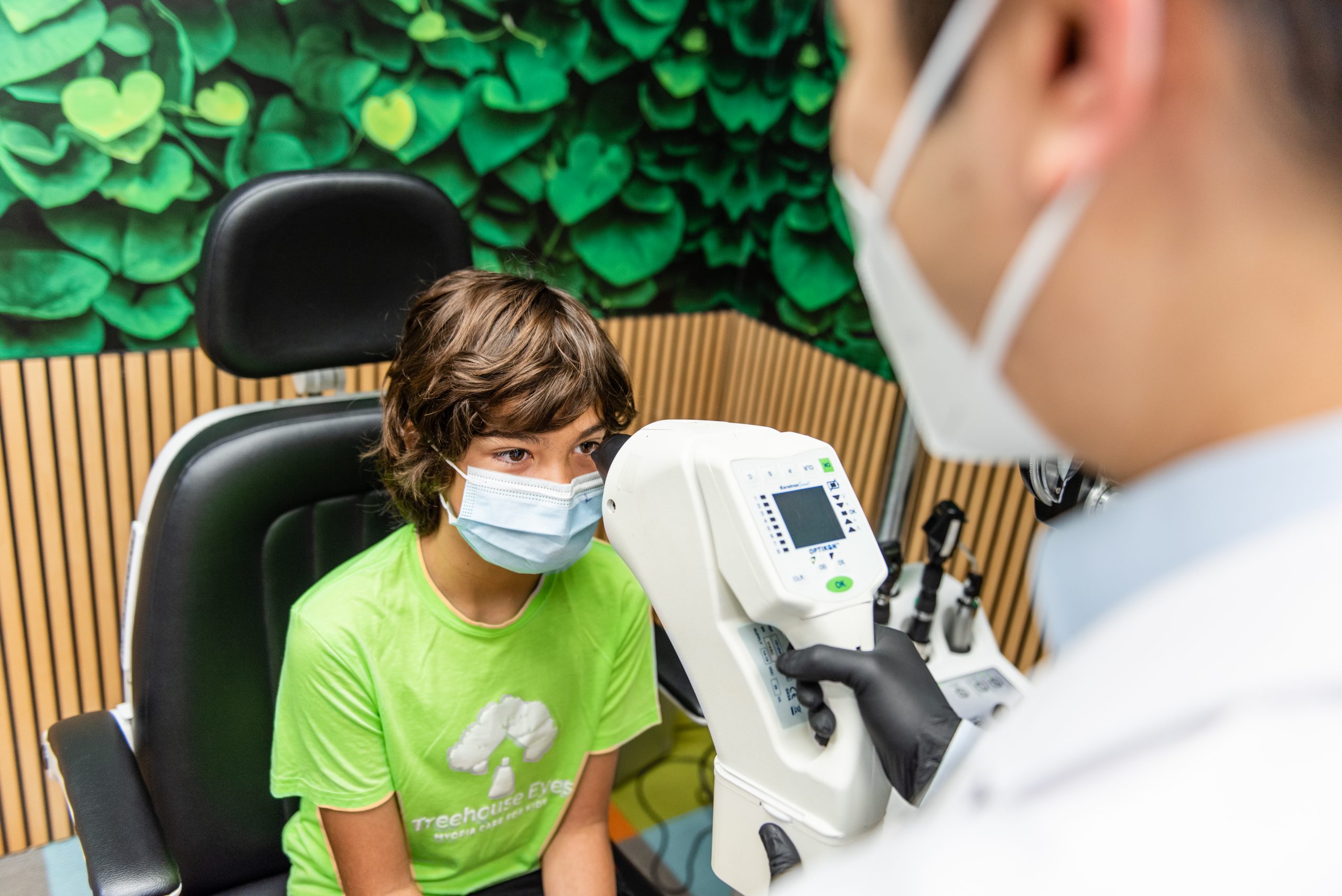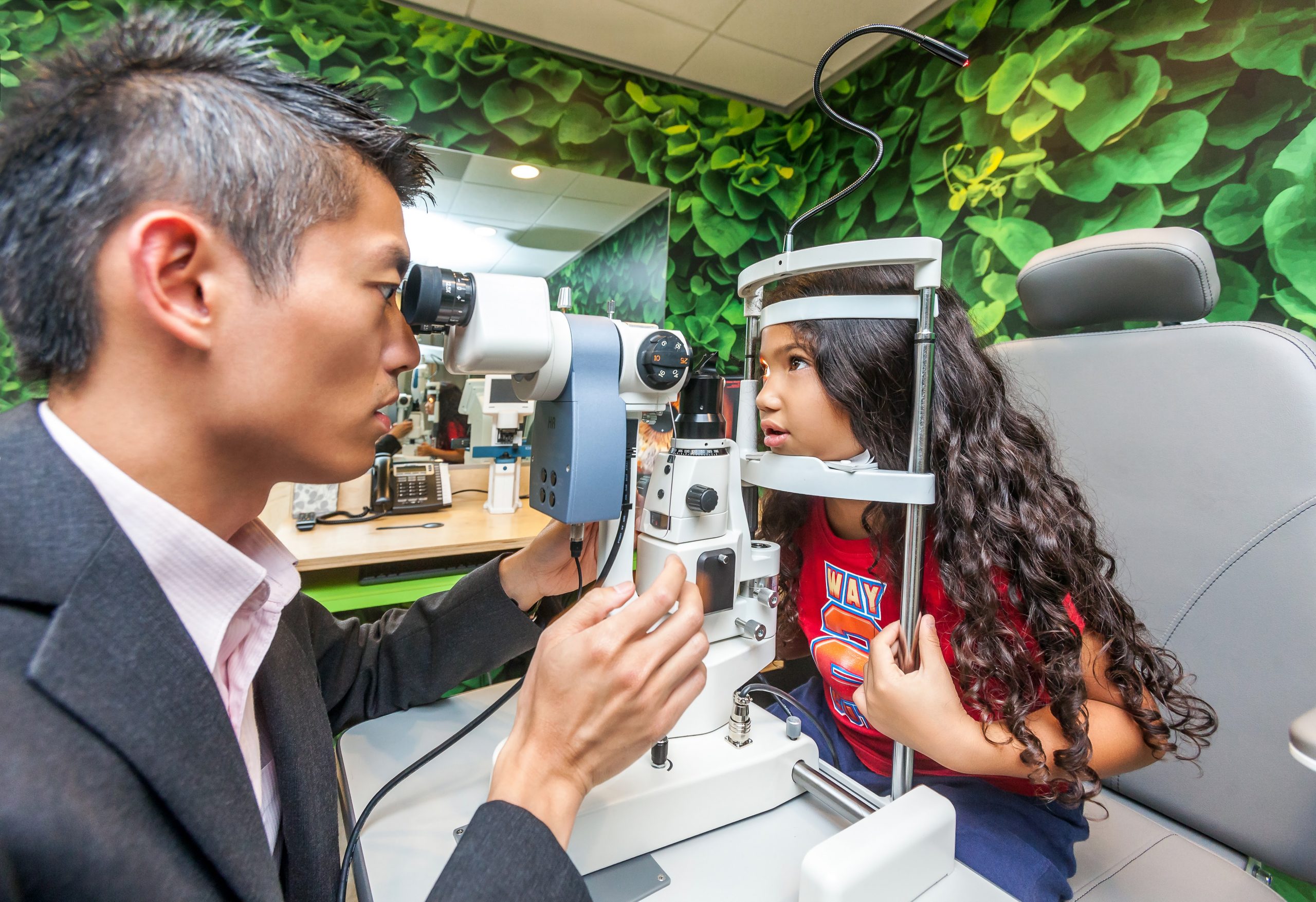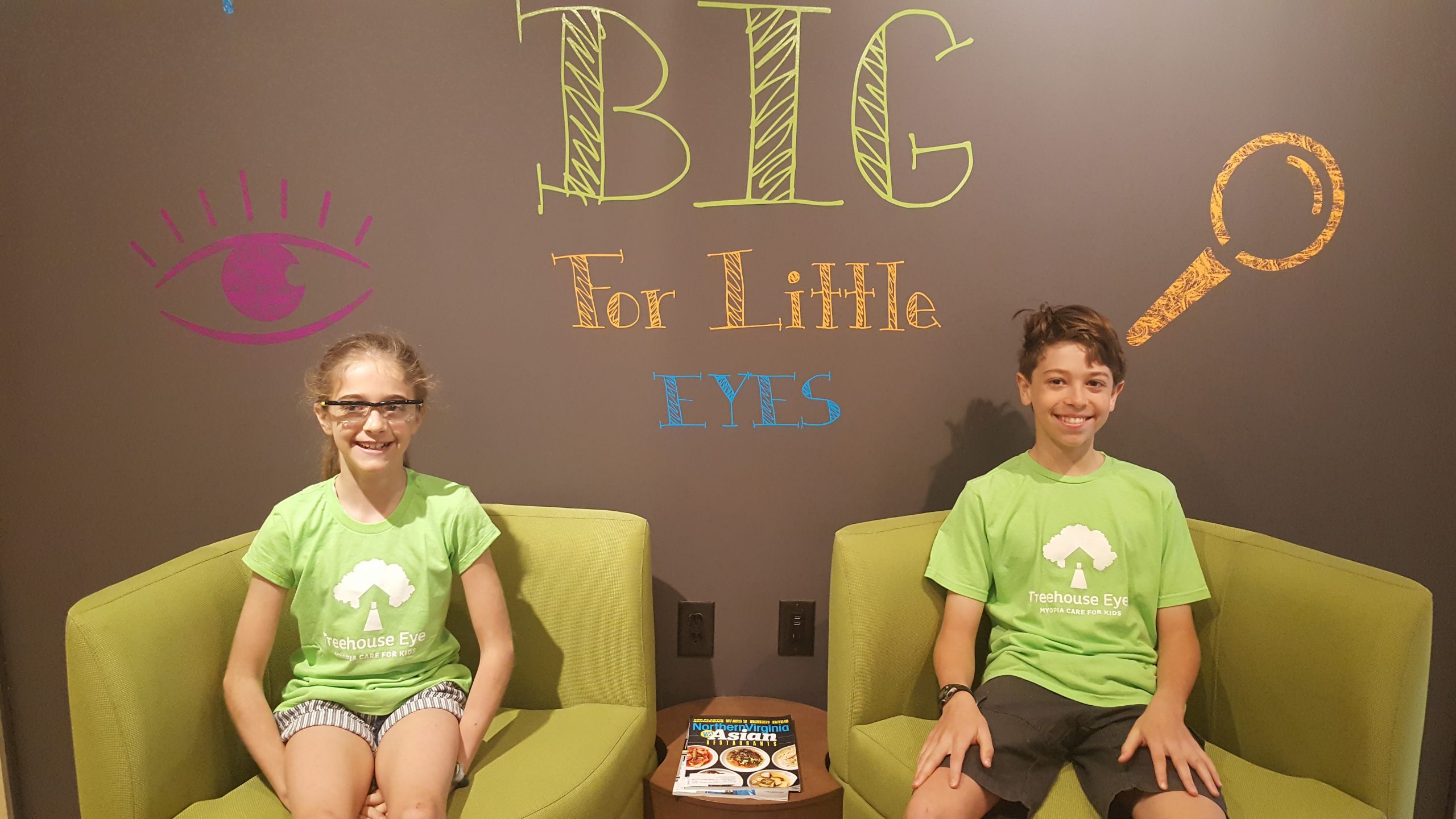
Myopia, also known as nearsightedness or shortsightedness, is the most common vision issue among children and young adults. Myopia happens as a result of the eyeball growing too much lengthwise – from front to back – which impacts the way light focuses in front of the retina, resulting in blurred vision.
When do children start developing myopia?
Myopia often begins developing between the ages of 6 and 14. Untreated, myopia can lead to more severe, sight-threatening diseases such as glaucoma, cataracts, and retinal detachments. Additionally, myopia often leads to struggles in school and activities due to poor vision.
Do genetics or lifestyle habits contribute more to the likelihood of developing myopia?
 In some cases, a family history of myopia can make children more prone but lifestyle behaviors are very important. We recommend 2 to 3 hours of outside time for kids per day to help slow the development of myopia in children’s eyes. Following months of lockdowns, it’s more imperative than ever that parents proactively take the steps to have their children’s eyes checked for myopia before it has the chance of worsening.
In some cases, a family history of myopia can make children more prone but lifestyle behaviors are very important. We recommend 2 to 3 hours of outside time for kids per day to help slow the development of myopia in children’s eyes. Following months of lockdowns, it’s more imperative than ever that parents proactively take the steps to have their children’s eyes checked for myopia before it has the chance of worsening.
Myopia’s risk factors increased during the COVID-19 pandemic, due to more time spent indoors and more frequent use of screen time among school-age children. Spending time outdoors is important to the health of your children’s eyes, to ensure they are experiencing enough natural light and depth perception, which can be greatly hindered by too much time looking at digital devices.
Can myopia be reversed in developing eyes?
While myopia never truly goes away, the good news is it is treatable and the deterioration can be slowed. If your child is experiencing issues with their vision, I encourage parents to book a free myopia consultation by visiting TreehouseEyes.com to find the location closest to them at one of their four operating practices in and around the San Francisco Bay Area. With their patent-pending Treehouse Vision System, we see a 78% decrease in the progression of myopia.
When should we bring our children in for their first eye test?
Higher levels of myopia significantly increase your child’s risks for serious eye diseases, like retinal disease and glaucoma. Early intervention is key to slow or even stop the progression of myopia in your child. We recommend monitoring screen time from an early age and beginning to schedule regular appointments after the age of 6, or as early as 4 if you detect your child is experiencing vision issues.
How often should children get their eyes tested?
At your initial consultation, your Treehouse Eyes doctor will determine a personalized treatment plan that will work best for your child. Their non-invasive treatments include customized contact lenses, special prescription eye drops, and regular check-ups.
Here are 4 tips for parents to help prevent and or slow the development of myopia at home:
-
- Increase outdoor time, aim for 2 to 3 hours of outside time per day
- Have good posture
- Reduce screen use
- Take frequent breaks from studying

The information on this website is not intended or implied to be a substitute for professional medical advice, diagnosis, or treatment. All content, including text, graphics, images, and information, contained on or available through this website is for general information purposes only. Always seek the advice of your physician or other qualified health care provider with any questions you may have regarding a medical condition or treatment and before undertaking a new health care regimen. Never disregard professional medical advice or delay in seeking it because of something you have read on this website.
Podcast: Play in new window | Download















